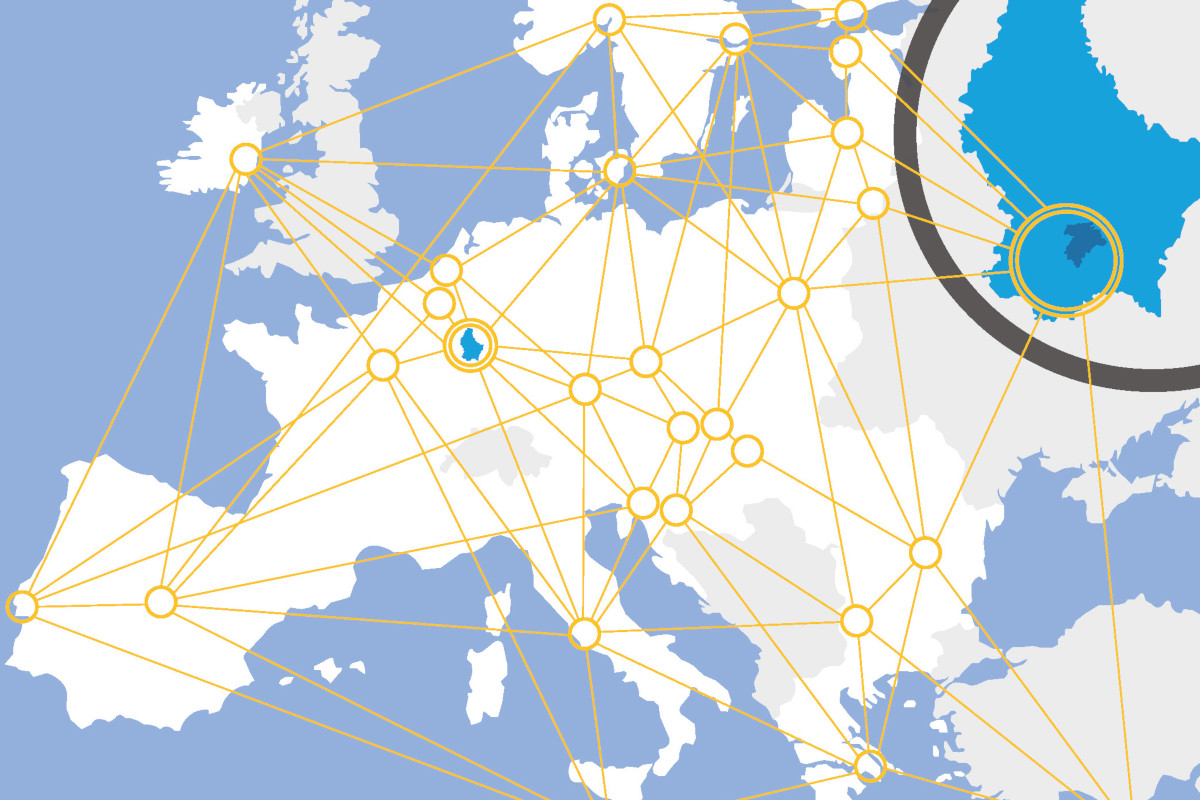EU: The ‘weaponised migration’ discourse dehumanises asylum-seekers
Topic
Country/Region
10 November 2021
Following the arrival of a substantial number of people in Poland and Lithuania after having crossed the border from Belarus, the EU and its member states have accused the regime of Alexander Lukashenko of "weaponising migration" - a discourse that legitimises the treatment of asylum-seekers "as other than human".
Support our work: become a Friend of Statewatch from as little as £1/€1 per month.

The European Commission President, Ursula von der Leyen, said in her 'State of the Union' address in September that the Belarussian regime "has put people on planes and literally pushed them towards Europe's borders," calling it "a hybrid attack to destabilise Europe."
Citing von der Leyen approvingly, 12 EU member states last month called the "instrumentalisation of illegal migration" a "hybrid threat" and called for the EU's external borders to "be protected with maximum level of security".
However, the Greek authorities were on the case long beforehand - a July 2020 letter from Ioannis Plakiotakis, the Greek maritime minister, to Fabrice Leggeri, Frontex director, referred to the Turkish authorities' decision to stop halting departures towards Greece as "a hybrid nature threat, directly affecting the EU internal stability," and "an offence against Greece’s national security, which necessitated to be counter addressed as such."
In an article for Social Europe, Felix Bender underscores the dangers of this discourse:
"Implying that having a few thousand asylum applicants at the EU’s external border equates to a hybrid attack on the union not only amounts to treating human beings as objects, rather than subjects, but also buys into the rhetoric of the Belarussian dictator. It is morally abhorrent and strategically mistaken."
In using this kind of language, "we perform a shift in perspective towards asylum-seekers. They no longer appear primarily as persons seeking international protection from political persecution in their home states—but as threats themselves," writes Bender.
Thus:
"The upshot of this shift is that asylum-seekers are primarily understood as pawns in the game between two hostile states—as weapons—and hence not as subjects whom we ought to treat as ends in themselves. It legitimises their treatment as other than human. In this context, they are a means to a political goal, allowing for reactions we would otherwise find abhorrent with regard to human beings: denial of the right to protection from persecution, violent pushbacks.
These are then no longer conceivable as mistreatments of human beings—rather as legitimate political reactions to the political action of an enemy. In sum, ‘weaponised migration’ denigrates asylum-seekers and thereby formulates and legitimises immoral political reactions." [emphasis added in all quotes]
Bender also observes:
"For something to work as blackmail or function as a weapon, it must not only be seen as a threat by the one who ‘deploys’ it but also by those at whom it is aimed. If the EU were not to view refugees as security threats, as destabilising or as economic burdens—all of which characterisations have been disproven in research on the effects of refugee integration—but as individuals deserving of dignity and fair asylum procedures, Lukashenka’s threat would be rendered empty.
Talking about ‘weaponised migration’ thus already implies an acknowledgment of migrants as weapons. It plays into Lukashenka’s tactic by accepting its terms."
However, it also serves to maintain the type discourse that many governments and EU officials have promoted since 2015 - migration as security threat. It may be that for some, "playing into" the tactics of the Belarussian authorities is seen as worthwhile if it aids in hardening public attitudes against people seeking safety.
Image: Kancelaria Premiera, CC BY-NC-ND 2.0
Our work is only possible with your support.
Become a Friend of Statewatch from as little as £1/€1 per month.
Spotted an error? If you've spotted a problem with this page, just click once to let us know.

